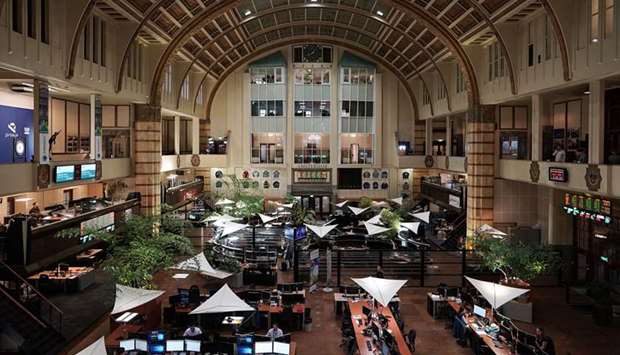For two years in a row, Europe’s largest stock-market listings have taken place in Amsterdam, which has beguiled companies with a deep pool of international investors and corporate governance norms that tilt in favour of management teams.
JDE Peet’s BV, the coffee business listed yesterday by the Reimann family’s JAB Holding Co, became the latest addition to Euronext Amsterdam’s roster of mega initial public offerings, going public with a market value of almost 16bn euros ($18bn).
The coffee giant’s float comes eight months after South Africa’s Naspers Ltd listed its Prosus NV internet unit on the world’s oldest stock exchange with a market value that well exceeded $100bn. Europe’s hottest deal of 2018 was payments company Adyen NV’s $1.1bn IPO in the Dutch capital. It is the Amsterdam Exchange Index’s best performer this year, up 58% compared with a 12% decline for the Dutch benchmark.
“Amsterdam has a deep and broad investor base that’s very international in share,” said Rients Abma, executive director at Eumedion, a Dutch corporate governance forum for institutional investors. On average, 85% to 90% of blue-chip Dutch stocks are owned by non-Dutch institutions, according to Abma.
Euronext Amsterdam is home to consumer-goods company Unilever, oil major Royal Dutch Shell Plc and semiconductor-equipment giant ASML Holding NV. More flexible corporate governance standards make the Netherlands an attractive listing destination, he said.
The Dutch corporate governance model gives management several legal options to gain more control over a company at the expense of investor power, said Corne van Zeijl, buy-side analyst at investment company Actiam. “A listing in the Netherlands doesn’t imply giving away power to shareholders.”
The option to establish a “Stichting” – a legal entity that shrouds the company and is essentially a takeover defence in the face of a hostile bid or shareholder activism – also makes Amsterdam an attractive home for firms, Abma said.
Generic-drug maker Mylan NV, which is run from Canonsburg, Pennsylvania, but incorporated in the Netherlands, used the defence in fighting an unsolicited offer from Teva Pharmaceutical Industries Ltd. in 2015.
The Netherlands is a popular place for international and regional head offices. Companies including Italian luxury carmaker Ferrari NV and French telecommunications operator Altice Europe NV are registered in the country.
“Definitely not all companies registered in the Netherlands also list here, but some do as it seems a bit more logical,” said Van Zeijl.
JDE Peet’s has deeper ties to Netherlands than just a registration. The company is headquartered in Amsterdam and the country generated 10% of its revenue last year. Most of all, the JDE in its name stands for Jacobs Douwe Egberts, borne out of a 2014 merger of Mondelez International Inc.’s caffeine business and Dutch coffee stalwart Douwe Egberts, first established in 1753.
Moreover, the brand listed in Amsterdam with great fanfare in 2012, under the name DE Master Blenders 1753 NV. Just over a year later, it was taken private again by JAB after findings of accounting irregularities at a subsidiary in Brazil led to a 56% decline in profit.

Financial traders monitor data on computer screens on the trading floor inside the Amsterdam Stock Exchange. For two years in a row, Europe’s largest stock-market listings have taken place in Amsterdam, which has beguiled companies with a deep pool of international investors and corporate governance norms that tilt in favour of management teams.
